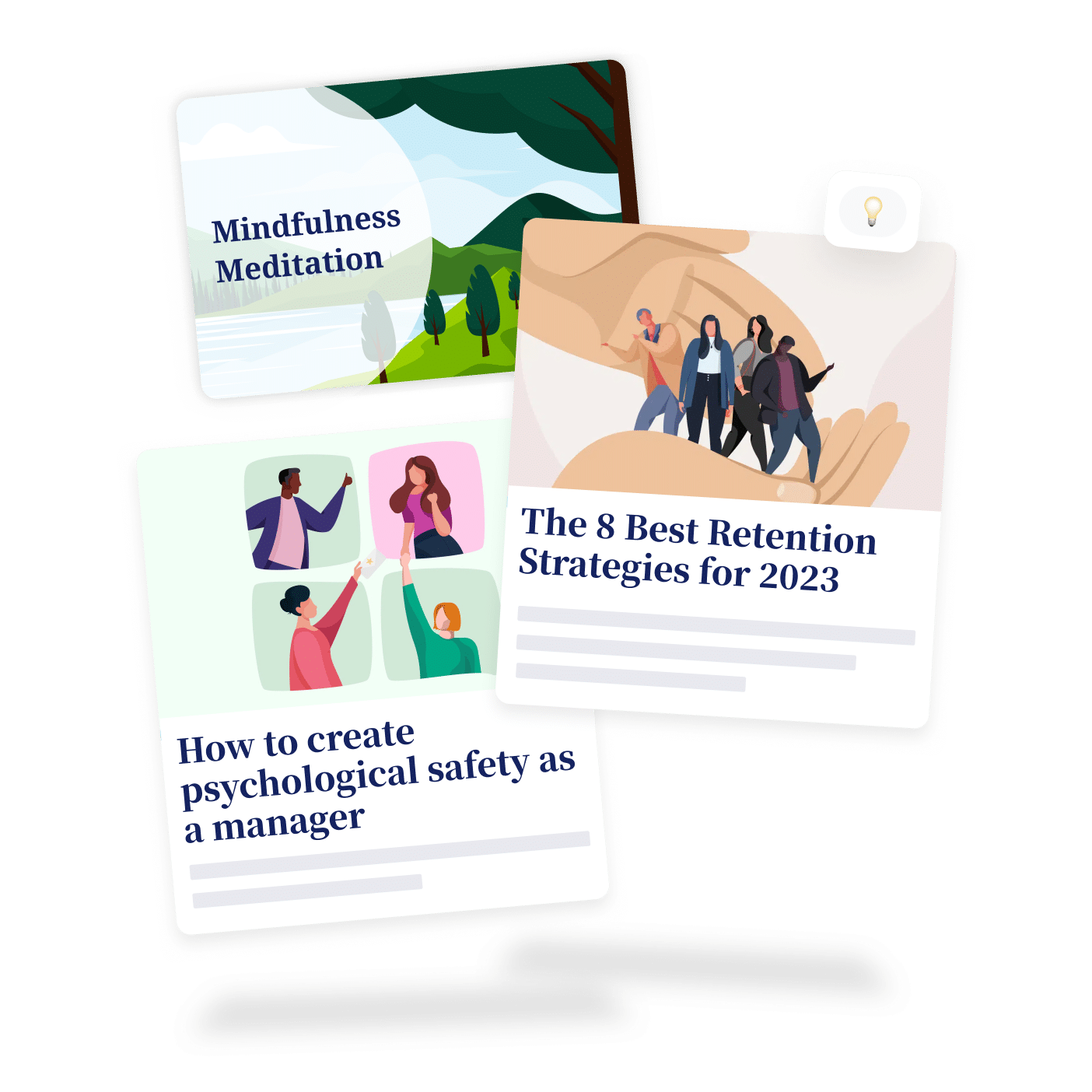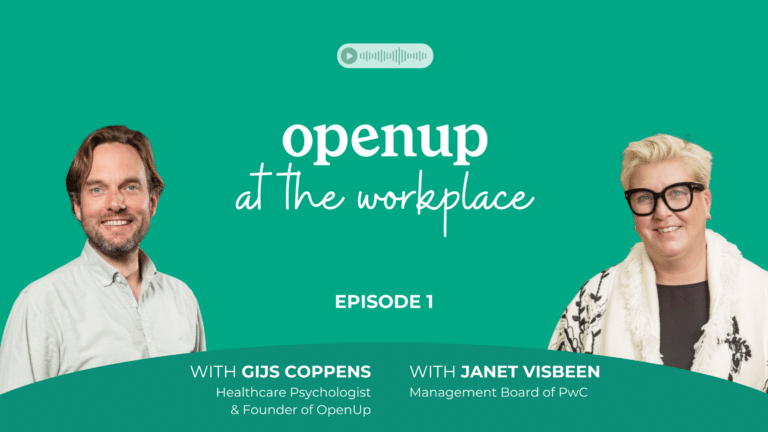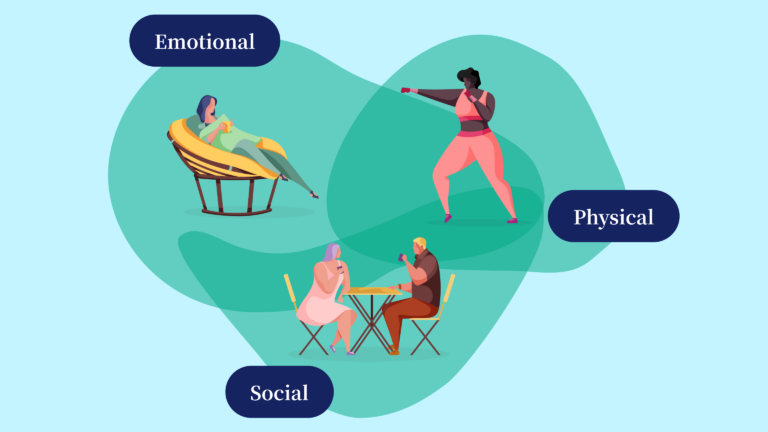Mental Well-being Throughout The Year: How To Support Your Employees During Each Season

Winter: The winter blues or a meaningful time?
The winter blues are world-famous. Our biological rhythm is disrupted because the shorter days cause us to produce more melatonin. This means we get tired more quickly, are irritable, and can’t concentrate as well.
In addition, we get less vitamin D because we aren’t getting as much sun on our skin. As a result, we feel sad and gloomier, don’t want to socialise as much, and tend to reach for unhealthy foods.
But as well as this, winter is an excellent time to take on meaningful projects. Because once December is out the way, there are fewer social distractions than in spring and summer, says psychologist Ida. “As well as meaningful projects, this period is perfectly suited for promoting quality connections amongst smaller groups.”
How to support your employees during the winter (blues)
Most of your employees will probably be familiar with the concept of the winter blues. This means you’ll mainly need to focus on giving out the correct information and support so that they can take care of themselves during the darker months.
- Support your employees with achieving well-being with a balanced diet. During winter for example it’s good to make sure to get enough vitamin D.
- Make sure there is plenty of daylight in workspaces as well. Daylight lamps might help here.
- Make room for extra breaks to walk outside during the day. Allow employees to pick their moment so they can get outside when the sun eventually decides to make an appearance.
- Offer support for those who face challenges with their mental well-being during this period. For some employees it might be tough to identify why they’re feeling low and it can be beneficial to receive personal guidance from an expert such as a psychologist or nutrition expert.
- Encourage your employees to develop a morning routine. A routine will help combat that gloomy feeling you get when your alarm goes off and it’s still dark outside. For example, a morning routine might consist of an online meditation session, writing down things they’re grateful for in a journal, or taking some extra time to eat a healthy and nutritious breakfast.
Spring: The season of new starts
People who struggle with the winter blues often feel better once spring arrives and the sun starts showing up a little more often. The days are getting longer, there’s sunshine on your skin again and you can get out and about more. The fact that spring cleaning is a “thing” shows that this is the perfect time for a fresh start.
Here’s how you can make the most of it:
- Since society is hitting the “reset button”, this is the perfect season for feedback interviews, strategy sessions and setting new goals, both as an individual and as a team. So, encourage this.
- Devote some extra attention to organizing inclusive social activities, so that the organization can slowly start coming together again in larger groups.
- Freshen up the workplace: organize a group spring clean and breathe new life into the joint (with plants, for example).
However, don’t forget people who are still struggling with the winter blues:
- Our supply of vitamin D is at its lowest in early spring because we’ve used it up over the winter. Therefore, make sure there is still a pot of vitamin D supplements lying around.
- Spring can cause social anxieties or the “fear of missing out”: we start to notice that people around us are doing more social things and feel that we should be doing that too. This is why you should encourage team activities in the spring.
Summer: Sun’s out, fun’s out!
Most of us feel the best about ourselves during the summer. We often eat more healthily (more fruit and lighter meals), the sun shines on our skin and the daylight makes us happy. During the summer months, we produce more serotonin: the substance that puts us in a good mood.
How you can make the most of this:
- Since people are often at their most energetic during the summer, it’s the perfect season for corporate events.
- In the summer months, focus on company-wide connections by getting together in larger groups.
- Another thing that makes summer great: workloads are lighter in many sectors. This means that there’s time and space to develop the new strategies that you formulated during the spring.
- We also like to offer the example of Dutch company Paperdork that allows its employees to finish three hours earlier every day during the quiet summer period.
- Do you think that’s a step too far? Then you can also fill the quiet hours by trying out new, innovative ideas.
- Organise an educational summer camp where employees can learn new out-of-the-box skills.
But there’s also such a thing as the summer blues. There hasn’t been much research into the cause, but there is a range of theories. The most significant is that our biological rhythm is disrupted by the long days and we may suffer from insomnia. Also heat, the absence of routine, body insecurities, and feelings of loneliness while the whole world seems to be out having fun are possible causes.
How to support your employees during the summer
The summer blues might make people feel irritable, restless or anxious. It also causes weight loss, insomnia and reduced appetite. Here are some things you can do to help:
- Recognise that the summer blues exists and that it can be a challenge for people.
- Organise inclusive social activities to offset feelings of loneliness.
- Encourage people to get plenty of exercise, especially outside. Recommend that employees get at least fifteen minutes of sun on their arms and head each day for plenty of vitamin D.
Fall: Slowing down and a period of rest
While some people enthusiastically post Instagram photos of their first pumpkin spice latte of the season, others aren’t so fond of fall. The arrival of fall marks the end of the sunny season, full of trips to the beach, drinks on the terrace, lazing around in the garden, festivals and vacations. Also, a lot of people start gearing up for the winter season in fall, a time of year some associate with the blues.
At the same time, fall is a season where you hit the brakes, turn inwards and relax.
Here’s how to support employees with the fall blues
Looking ahead to the winter season can be a subtle cause of distress for employees. Acknowledge that this is a thing and make it known that it’s normal for people to be feeling a little under par.
You can do this internally by communicating through email or the intranet, for example. Highlight how people can get the most out of the fall: by getting cozy at home, spending more time on self-reflection and hobbies, taking up meditation again, you name it.
In addition, you can do the following:
- Encourage employees to slow down. Take time for individual and group reflection.
- Fall is an excellent season to give employees time for “hobby projects”. Some employers will pick a day or afternoon in the week or month and reserve it for (work-related) hobby projects.
- Give employees extra breaks and encourage them to take a walk at lunchtime during the daylight. Exercising and daylight help combat unpleasant feelings.
- Encourage employees to practice mindfulness in order to become more resilient and get a better grip on their emotions. Top tip: During our mindfulness group sessions, employees can practice mindfulness every Tuesday and Thursday with a psychologist.
- In the fall, people have a tendency to eat less healthily. Make sure to offer varied and healthy lunches at work. Focus on the following ingredients in particular: eggs and mushrooms (for added vitamin D), oily fish (for healthy fatty acids), bananas (to boost happiness) and chocolate (also for happiness!).
If you know what the biggest challenges are each season, you can support your employees throughout the year in the appropriate manner. For those who could use a little extra support managing their thoughts and feelings, OpenUp is always here to help.





